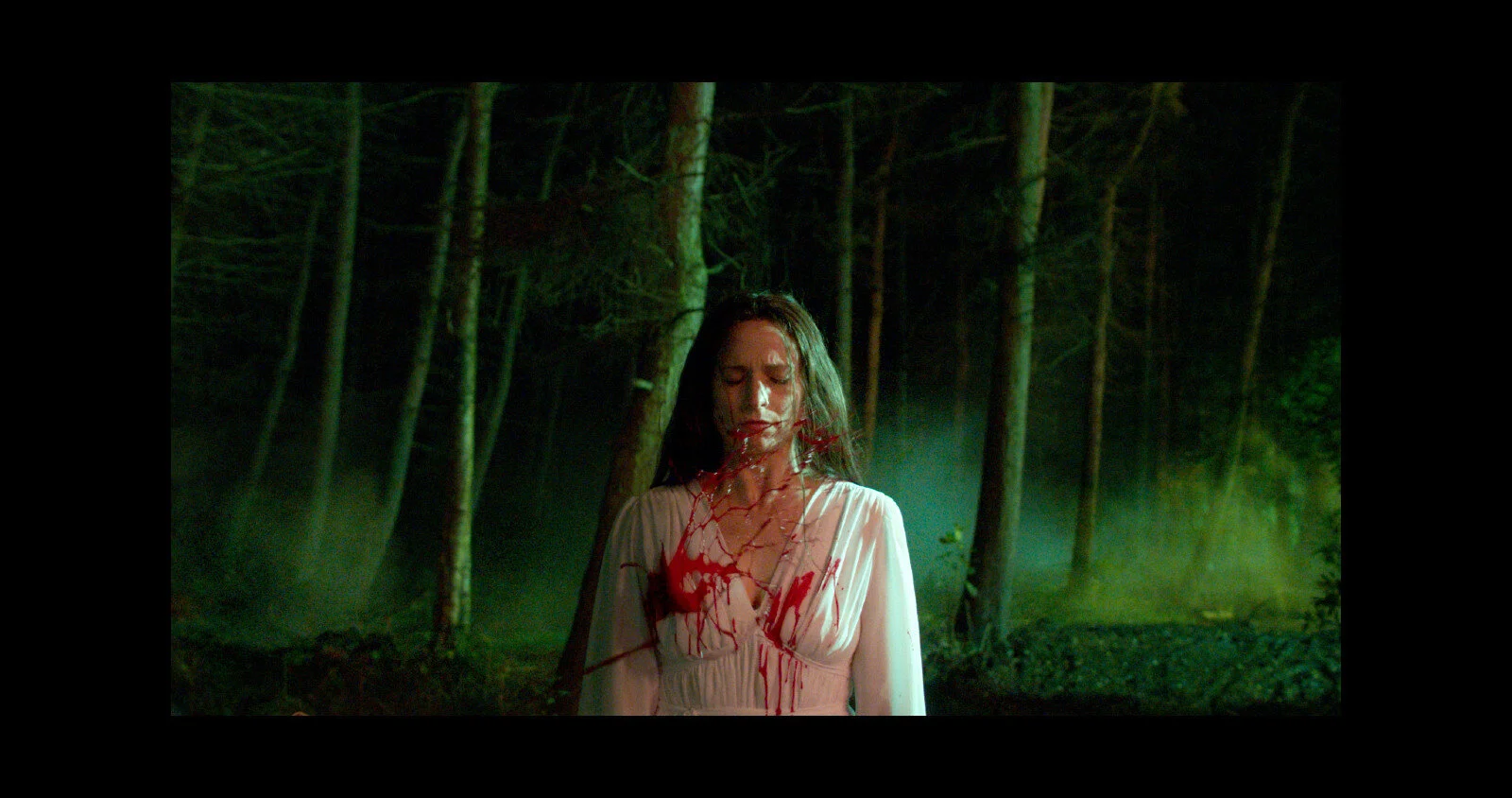Censor: Sharp Thriller Heralds Bold Talents of Emerging Director Prano Bailey-Bond
By Thom Ernst
Rating: A-
The excitement felt from watching Censor isn’t solely the effect of a trippy, smartly told thriller. It’s the charge that comes from being witness to the debut of a unique talent tempered by the knowledge that as good as the movie is, it’s not likely to suit everyone’s taste. Censor is an off-brand horror treat that walks the distance between artistic freedom and the scrutiny of morbid excess to which the title refers.
Director and writer Prano Bailey-Bond has already been earmarked for success by Variety and Screen International as a “director to watch” and “star of tomorrow.” By no means do their accolades oversell expectations. Censor pulls off a rather remarkable feat by being truthful enough to be palpable and yet freakish enough to be visionary.
The mark of the director is in every scene. But her intrusion does not distract. Instead, Bailey-Bond works with the air of a cordial host who introduces us to the party, confides in us that things might get out of hand, then leaves to spike the punch.
The film is set in the 80s, subtly revealed as the viewer notices the absence of computers and an abundance of rotary phones. It’s the right era for this story, a time when British horror went from the relative passive, atmospheric darkness of Hammer films to extreme depictions of brutal rape, torture, and dismemberment. These are appropriately called video nasties.
To front her story, Bailey-Bond elicits the skillful talents of Niamh Algar, who does wonders as Enid Baines, a censor with a persnickety and exhausting eye for detail.
Cracks begin to show in Enid’s otherwise composed demeanor after a questionable scene she approved is suspected of being the catalyst for a horrific mass killing. Enid becomes the unlikely target of public outcry (it appears in the 80s, censors were recognizable public figures).
PROUDLY SUPPORTS ORIGINAL-CIN
But there’s more. Enid increasingly becomes incapable of compartmentalizing the trauma she sees on the screen with a trauma that has marked her own life, an unretrievable memory from her past when her younger sister disappears while in her care.
Years later, Enid insists her sister is alive despite repeated pleas from her parents to accept her sibling’s death. Things are magnified when a scene from the film Don’t Go in the Church by controversial filmmaker Frederick North (a shadowy performance from Adrian Schiller) shows disturbing similarities to Enid’s final moments with her sister.
Now, with suspicions fully lit, Enid ventures on a quest to save her sister, who she believes is the fading star in a series of video nasties.
Her quest leads Enid to Doug (played with repulsive smugness by Michael Smiley), the sleazy producer of Don’t Go in the Church, and other video nasties. Doug shamefully (and publicly) asserts his position of power to manipulate, intimidate, and humiliate those he deems beneath him, which is everyone, including the much wiser Enid, who suspects he knows something about her missing sister.
Censor draws comparisons to Peter Strickland’s masterful (and unfathomably ignored) thriller Berberian Sound Studio (2012), the story of a sound editor (Toby Jones) working on an Italian Giallo film subjected to the gruesome sound replications of murder.
But Bailey-Bond’s stable grip on the narrative reveals even stronger influences from filmmakers and films like David Lynch’s Blue Velvet, Robert Altman’s Images, and Roman Polanski’s Repulsion. These are not homages—that tired rhetoric of those who merely mimic—but instead, glimpses of lessons well learned.
Censor takes an interesting detour from the video nasties Enid is exposed to by looking at the toll a daily barrage of decapitations, power-drill killings, and hatchet-wielding children might have on a person. Bailey-Bond cleverly parallels the staged violence in clips from the video nasties with the factual violence the public idly consumes through the nightly news and newspaper headlines.
The film’s more graphic depictions come as second-hand violence experienced on the censor’s screens as clips from other movies. It can still be shocking, given that the violence is seen out of context from its source. But in Censor, it’s the violence rather than the victim that is objectified.
Bailey-Bond doesn’t offer any conclusive theory about the psychological erosion that happens to anyone who watches these films, whether it be by choice or by occupation. In fact, Bailey-Bond doesn’t settle for anything conclusive.
If that resonates as too arty for your liking, keep in mind that the path Bailey-Bond puts us on leads to its own brand of poetic retribution.
Censor. Directed by Prano Bailey-Bond. Starring Niamh Algar, Michael Smiley and Adrian Schiller. Available June 18 on VOD.



